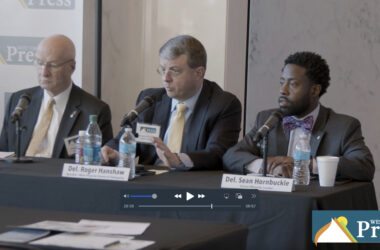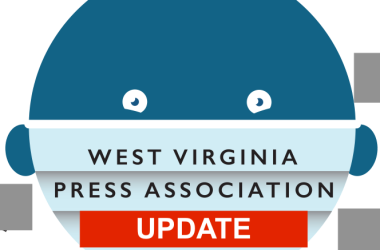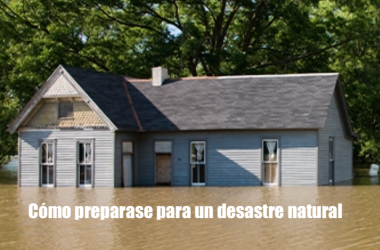ELKINS, W.Va. — The city of Elkins has been accepted into a state program intended to give municipal governments an opportunity to self-govern based off their own issues and local considerations.
Elkins was granted home rule status by the Municipal Home Rule Board in Charleston, after a presentation from Mayor Van Broughton and City Clerk Sutton Stokes.
Harpers Ferry was also accepted into the program during Monday’s meeting.
“It’s something we’ve been wanting to do for a while,” Broughton told The Inter-Mountain. “(Stokes) and (City Attorney Gerri Roberts) put a lot of work into this and did a lot of research. It’s real exciting we got accepted.”
Stokes said it was great “to join the club of other cities that have been awarded home rule status.”
“The whole intent of the program is for the local elected officials to come up with local solutions to local problems,” he said. “We’re hopeful that the authorities we’ve been granted are going to be useful tools in the toolbox for addressing some of the issues of most concern to the community.”
The West Virginia Municipal Home Rule Pilot Program was established in 2007. In order to be considered for home-rule status, municipalities are required to submit an application and plan, which is to include specific information about what changes – that align against standing West Virginia code – the city would like to make.
Topics approved by the Home Rule Board for municipal governance in Elkins include the city’s allowance to address dilapidated properties and miscellaneous civil service, party affiliation, administrative and economic development authorities. The Board accepted each of the city’s requested authorities into the program, with the exception of one – the authority to exercise a right of first refusal to purchase any delinquent-tax property inside city limits for taxes owed before the property is listed for sheriff’s auction.
Stokes noted Huntington, which is part of the home-rule program, has been in litigation over their right to exercise a similar granted authority in city limits. The municipality recently decided to settle rather than pursue that authority.
“I don’t know what their precise logic was but I guess they felt that, given the history, that authority isn’t a viable option anymore,” he said. “I think we knew that one was a reach going in and we were just trying to possibly push the envelop a little on that one.”
Stokes added the home-rule board approved another authority to pursue a measure that would require anyone who buys a property at tax-sale auction must satisfy the city’s demolition lien before securing title to the property. He said that measure functions similarly to the authority Elkins requested.
“If you’re talking about a bare lot, especially in a residential area, that is being sold for taxes plus $20,000 or $30,000 worth of demolition costs – chances are nobody except the city would want that property anyway,” he said.
City officials may introduce measures related to the authorities listed in the city’s application effective immediately, although any alterations to city code will still need to go through traditional avenues, which includes committee review and multiple readings before Council. Municipalities that have been accepted into the program are prohibited from addressing issues that are not mentioned on the original application without board approval.
“We applied for and got a very specific list of authorities. We don’t have blanket authorization to do anything other than those,” he said. “There aren’t going to be any changes to tax rates.”
Stokes said he expects the “straight forward,” miscellaneous authorities to be brought up in committee and before City Council “within a couple months.” As for the authorities concerning dilapidated properties, Stokes expects “a good deal of discussion” before legislation will be introduced to city officials.
“When you get into the nuts and bolts of writing legislation, it’s amazing how many small, unforeseen obstacles you can run into,” he said. “We will be working on it in earnest starting before the year’s out in committee and we’ll just have to see where it goes from there.”
City officials can now address the following authorities in regards to dilapidated properties:
– The authority for code enforcement, building and/or city police officers to cite property owners “on the spot” for violations of city ordinances concerning property maintenance and health.
– The authority to require lenders and trustees to register and maintain foreclosed property.
– The authority to place public-nuisance liens for unpaid nuisance abatement charges against a property without a court order.
– The authority to require that someone buying a property at tax-sale auction must satisfy the city’s demolition lien before securing title to the property.
– The authority to sell without auction or lease city property at fair-market value to private purchasers in a manner that promotes economic development and/or the public good.
– The authority to sell without auction or lease city property at below-market value to 501(c)3 corporations.
City officials are also seeking the following miscellaneous authorities:
– The authority to employ part-time, non-civil-service police officers.
– The authority to raise the upper age limit for initial entry-level appointment of full-time civil-service officers from 40 to 45.
– The authority to eliminate requirements that political party membership be taken into account for appointments as election officials and to civil service and building commissions.
– The authority to reduce the number of business-license categories and/or reduce the fees charged to various categories.
– The authority to eliminate current distance requirements between churches and restaurants/bars.
The four municipalities originally selected in 2007 for the charter program were Charleston, Huntington, Wheeling and Bridgeport.
A 2012 special report by the Legislative Auditor’s Performance Evaluation & Research Division found “The Municipal Home Rule Pilot Program has been effective in improving local governance and broad-based home rule and should be extended statewide.”
Effective July 1, 2013, the state legislature passed Senate Bill 435, which continued the pilot program and increased the powers and duties of the Home Rule Board.
An amendment and re-enaction of Senate Bill 317 in March of 2014 marked Phase II of the program and expanded the number of cities allowed to participate to 20. In October of 2014 the following cities were accepted into the program: Bluefield, Buckhannon, Charles Town, Clarksburg, Dunbar, Fairmont, Martinsburg, Milton, Morgantown, Nitro, Parkersburg, Ranson, Shinnston, South Charleston, Vienna and Weirton.
On March 14, legislators passed Senate Bill 323, permitting 14 addition cities to be included in the home rule program. In September, Beckley, Grafton, Moundsville, Oak Hill, Princeton and Saint Albans were accepted into the program.




